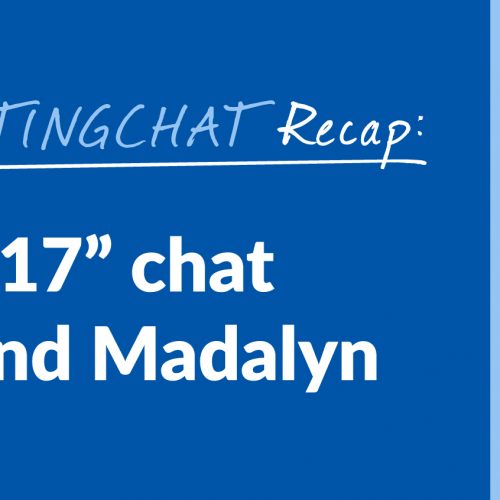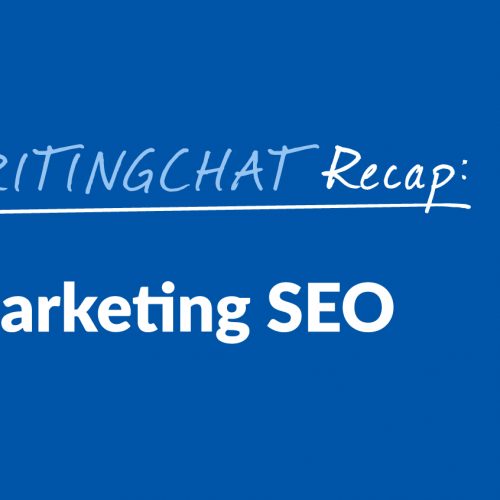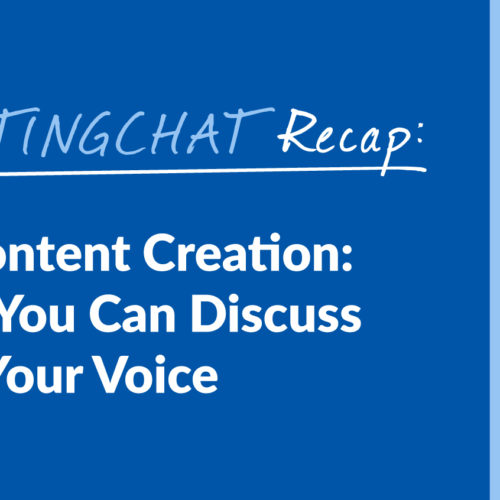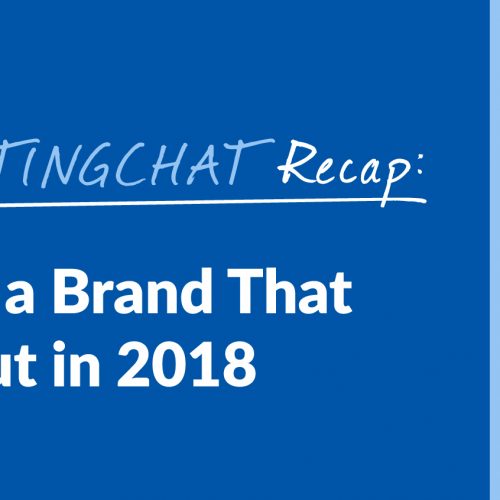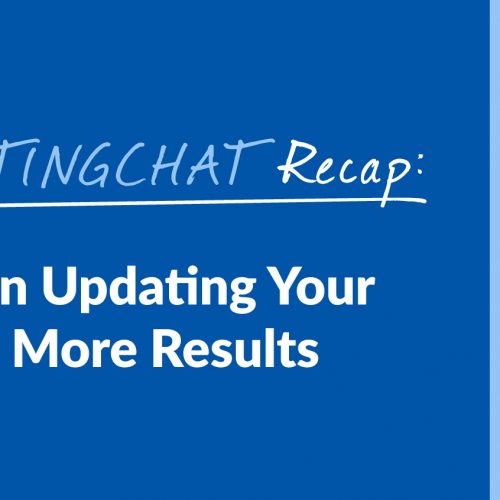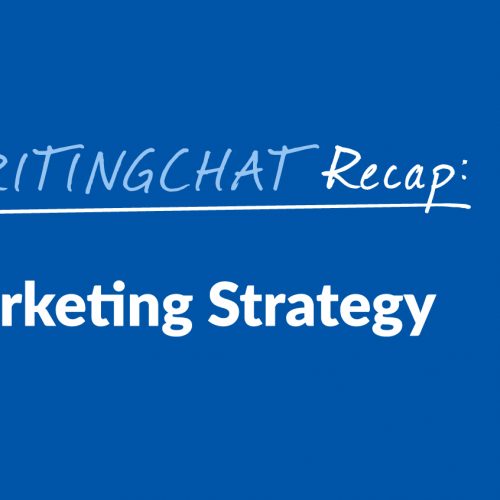#ContentWritingChat Recap: How to Implement Successful Livestreaming Into Your Content Marketing Strategy with Ross Brand
Have you been using live video as part of your brand’s online strategy? If not, now is the time to jump on the bandwagon because it certainly isn’t going away! But if you’d like some tips to help you become a livestreaming master, we have everything you need to know right here! This week’s #ContentWritingChat is filled with valuable advice that’s worth reading before you hit that “Go Live” button. #ContentWritingChat Recap: How to Implement Successful Livestreaming Into Your Content Marketing Strategy with Ross Brand Welcome to #ContentWritingChat! ?? Our guest host this week is @iRossBrand! He’s joining us to share some tips and tricks to take our livestreaming skills to the next level. If you’re joining us today, say hi! pic.twitter.com/Y7zRsOivcW — Express Writers (@ExpWriters) March 20, 2018 Our guest host this week was Ross Brand. He’s behind the site, Livestream Universe, which is all about helping businesses leverage the power of livestreaming. Q1: Why is livestreaming a valuable component of a content strategy? If you’re not convinced that livestreaming is worth your attention, you’ll start thinking otherwise after reading these responses! We asked everyone to share why they think it plays such a big role in their overall content strategy. Here’s what a few chat participants said: A1-1) #Livestreaming builds the know, like and trust factor with potential customers faster than other forms of communication. It’s enables a two-way conversation via the live chat or even bringing people on camera. #contentwritingchat — Ross Brand (@iRossBrand) March 20, 2018 A1-2) #Livestreaming viewers are able to get a sense of who you are, what it’d be like to work with you, your knowledge, your passion for what you do, how you react to questions and issues related to your business in real time. #contentwritingchat — Ross Brand (@iRossBrand) March 20, 2018 As Ross pointed out, live video is a great way to build the Know, Like, and Trust Factor with your audience. It allows them to get to know you better and see what you’re all about. A1) Livestreaming is awesome because it adds a very human element to the content. As content marketers, we know that being human is essential to reach your audience. Livestreaming is as human as it gets b/c there’s no editing.#ContentWritingChat pic.twitter.com/iABcJie0m5 — Jason Schemmel – Podcaster. Speaker. #GSDChat?️ (@JasonSchemmel) March 20, 2018 Jason said live videos can add a human element to your content. It’s raw, unedited footage and your viewers can relate to what they see since they’re getting the real you. A1: Livestreams help brands humanize their company in the eyes of the consumer. You’re removing any element of editing and giving them that raw, unaltered footage that strengthens your credibility and maximizes your transparency. #ContentWritingChat — Maria Marchewka (@_MariaMarchewka) March 20, 2018 Maria also agrees that livestreaming humanizes a brand. She also feels it strengthens your credibility and maximizes transparency. A1 It’s a window into your company, it’s a human connection – a great way to build a relationship with your audience #contentwritingchat — Iain G. Scott (@IainGScott) March 20, 2018 Iain said it gives people a window into your company. They’ll get to see what things are like behind-the-scenes. A1: People want to get to know the person behind your brand. Livestreaming allows them to see you in an authentic, personal way. #ContentWritingChat — Amanda Cross (@amandacrossco) March 20, 2018 As Amanda pointed out, people want to get to know the person behind the brand. And going live is a fantastic way to show people what you’re like! A1: It gives your audience a unique vantage point. With livestreams, they’re able to see the world through your lens which gives them the chance to become immersed in the experience. #ContentWritingChat — Flying Cork (@flyingcorkpgh) March 20, 2018 Live video also gives your audience a unique vantage point. A1. It allows you to connect in a more personal way with your customers, you gain immediate feedback from your followers, and these videos get so much traction even after the live event is over. #contentwritingchat — Doris Shadouh (@DShadouh) March 20, 2018 It’s all about helping you connect with your audience in a more personal way. A1: Each member of your audience is slightly different. Someone might not take in written content the way they would live stream. Live stream allows you to make sure you’re hitting everyone in your audience. #ContentWritingChat — Netvantage Marketing (@netvantage) March 20, 2018 Everyone in your audience is different! And as Lexie pointed out, some may really appreciate a live video because they consume content better that way. Q2: How does someone get started with livestreaming? What gear do you need? Now that you’re sold on the value of livestreaming, it’s time to get started with your first broadcast! But what exactly do you need before you can go live? Here are some tips: A2-1) The easiest way to get started is with your mobile phone. The device in your pocket has everything you need to livestream. When you first start #livestreaming, keep it short, introduce yourself & know what you want to talk about or write out an outline. #contentwritingchat — Ross Brand (@iRossBrand) March 20, 2018 A2-2) You don’t need to spend much on gear to get started #livestreaming. In any situation where there are other people on the same broadcast, it’s best to use iPhone ear buds or headphones to avoid feedback. Your ear buds have a mic built-in too. #contentwritingchat — Ross Brand (@iRossBrand) March 20, 2018 As Ross said, there’s no need to spend a bunch of money on livestreaming if you’re just starting out. You can absolutely use your smartphone to go live, as well as a pair of headphones with a built-in microphone. A2-3) For desktop & laptop #livevideo, you can get a decent #microphone & boom arm to hold it off your desk for $75. Dynamic mics are best b/c they pick up less room and background noise. The @samsontech Q2u is a great option at a … Read more




